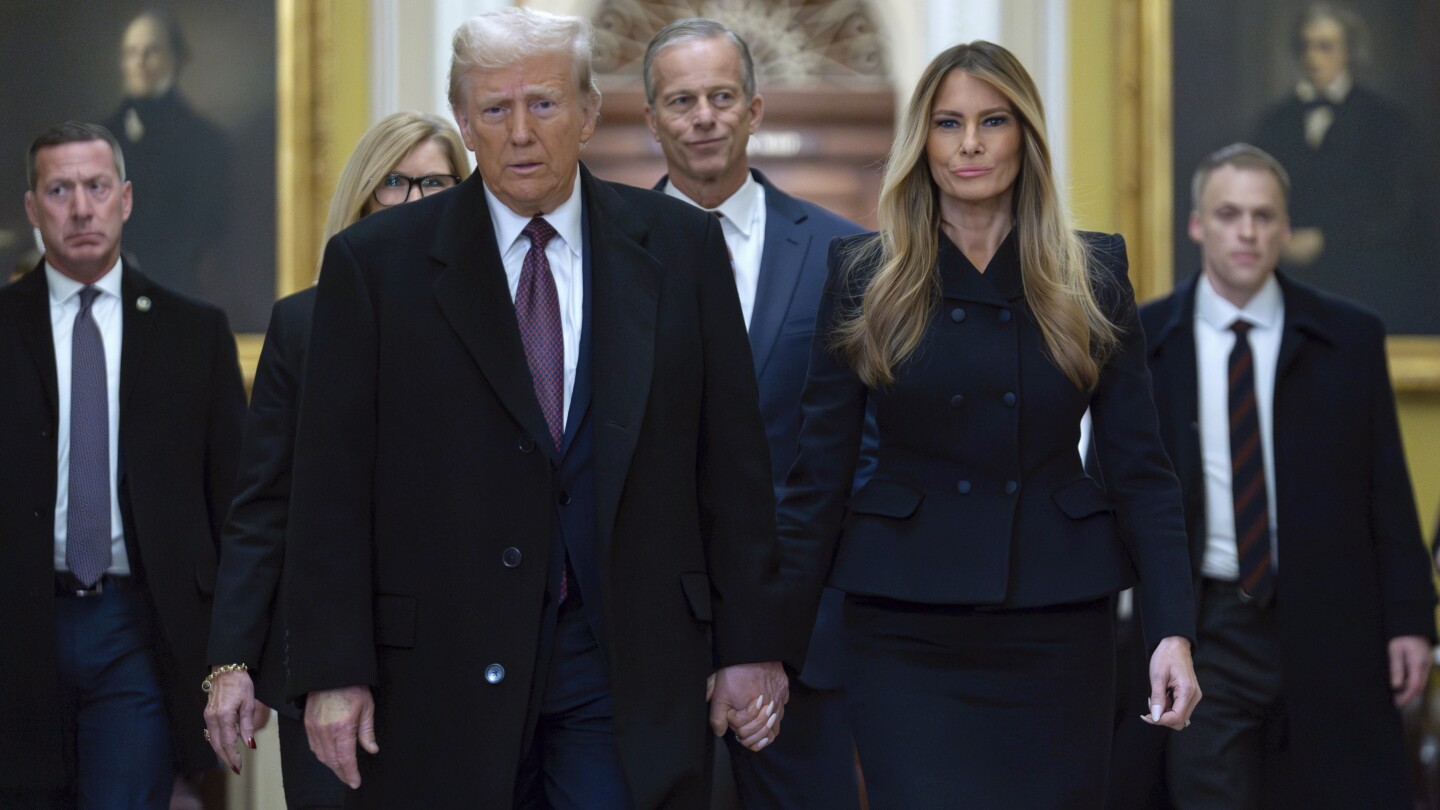Trump’s Shift: From ‘America First’ to a New Imperial Ambition
As the political landscape evolves, Donald Trump appears to be redefining his stance from the ‘America First’ doctrine to a broader imperial perspective. This unexpected pivot raises questions about his future strategies and the implications for U.S. foreign policy. The transition from a nationalist approach to one that hints at a more expansive, perhaps even imperial, ambition marks a significant shift in Trump’s political narrative and could reshape the contours of American leadership on the global stage.
The Roots of ‘America First’
When Donald Trump first announced his candidacy for president in 2015, he championed the ‘America First’ slogan with fervor. This doctrine appealed to many Americans who felt left behind by globalization, advocating for strict immigration policies, trade protectionism, and a withdrawal from international commitments that were perceived as detrimental to U.S. interests. Trump’s administration was characterized by a focus on domestic issues, prioritizing American jobs, and renegotiating trade deals to favor the United States.
Central to the ‘America First’ ideology was a skepticism of foreign entanglements. Trump’s presidency saw dramatic shifts in foreign policy, such as withdrawing from the Paris Climate Agreement and the Iran Nuclear Deal, illustrating his commitment to prioritizing American sovereignty over global cooperation. This approach resonated with a significant portion of the American electorate, reinforcing the idea that the U.S. should not bear the burdens of global leadership if it compromised the nation’s interests.
Signs of a Shift
However, recent developments suggest that Trump may be moving towards a more imperial ambition. The shift became particularly evident during his speeches and public appearances as he laid out plans that go beyond mere national interests. Here are some indicators of this transformation:
- Increased Military Rhetoric: Trump has begun to emphasize the importance of military power and its role in asserting American influence globally. Unlike his previous rhetoric, which focused on reducing overseas military engagements, he now advocates for a stronger military presence in key regions.
- Global Leadership Claims: In recent statements, Trump has expressed a desire for the U.S. to reclaim its position as a global leader, suggesting that a more interventionist foreign policy may be on the horizon. This includes taking a firmer stance against rivals like China and Russia.
- Economic Expansionism: Trump’s economic policies are increasingly framed around the idea of American exceptionalism and influence. His emphasis on energy independence and exporting American goods suggests a vision of not just protecting American interests, but expanding them globally.
Implications of a New Imperial Ambition
The implications of Trump’s potential pivot from ‘America First’ to a new imperial ambition are profound and multifaceted. Here are several key areas to consider:
1. Foreign Relations
A shift towards a more imperial stance could strain U.S. relations with traditional allies. Countries that have relied on American leadership may feel uncertain about their roles in a U.S.-centric world that appears to be shifting focus. The potential for increased military involvement may also provoke backlash from nations wary of American interventionist policies.
2. Domestic Reactions
Domestically, Trump’s shift may polarize the electorate further. While some Americans may rally around a vision of renewed strength and international leadership, others may view this as a betrayal of the ‘America First’ principles that brought Trump to power. This could lead to internal divisions within the Republican Party and among the electorate at large.
3. Economic Policies
Economically, an imperial ambition might lead to a focus on global trade relations that could benefit American corporations but may not necessarily translate to job growth for the average American worker. As Trump seeks to expand American influence, the balance between domestic priorities and international ambitions will be a critical point of contention.
4. Global Power Dynamics
On the world stage, a more imperial U.S. could alter global power dynamics. Increased military presence and intervention in global affairs could lead to tensions with other major powers, particularly China and Russia, who may view U.S. actions as threats to their own interests. This could spark a new era of geopolitical competition reminiscent of the Cold War.
The Road Ahead: Challenges and Opportunities
As Trump navigates this potential shift, he faces numerous challenges and opportunities. The key will be balancing the desires of his base, who may still prioritize ‘America First’ policies, with the broader ambitions of American global leadership. Furthermore, he will need to address the complexities of international relations in a multipolar world where other nations are also vying for influence.
To successfully transition to this new imperial ambition, Trump must craft a narrative that resonates with American voters while also addressing the realities of global politics. This might include:
- Engaging Allies: Building stronger alliances and partnerships could help mitigate concerns about U.S. intentions and foster cooperative approaches to global challenges.
- Communicating Benefits: Clearly articulating the benefits of a more active U.S. role in the world, particularly in terms of economic growth and security, will be crucial in garnering public support.
- Leveraging Technology: Utilizing advancements in technology for diplomatic and military purposes could enhance U.S. influence without the need for traditional military interventions.
Conclusion
Trump’s shift from ‘America First’ to a potential new imperial ambition presents a complex landscape for U.S. foreign policy. While his administration’s previous focus on nationalism resonated with many, the current trajectory suggests an evolving vision that could redefine America’s role in the world. As this transformation unfolds, the implications for both domestic and international relations will be significant, requiring careful navigation to balance ambition with pragmatism.
Ultimately, the success of this shift will depend on how well Trump can align his ambitions with the interests of the American people, ensuring that the U.S. remains a strong and respected presence on the global stage, while also addressing the needs and concerns of its citizens at home.
See more BBC Express News

